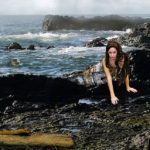 History
History  History
History  Miscellaneous
Miscellaneous 10 Ancient Etiquette Rules You Never Knew Existed
 Our World
Our World Planet Earth’s 10 Most Hardcore Natural Creations
 Movies and TV
Movies and TV 10 Times Twin Movies Competed with Each Other
 The Arts
The Arts 10 Masterpieces Plucked from the Artist’s Subconscious
 Crime
Crime 10 Fascinating Facts about Rikers Island
 Pop Culture
Pop Culture 10 Things You Might Not Know about Dracula
 Weird Stuff
Weird Stuff 10 Everyday Activities That Were Once Considered Illegal
 History
History Ten of History’s Hidden Secrets: Stories 99% Don’t Know About
 Movies and TV
Movies and TV 10 Actors Who Infamously Stormed Off Set While Filming
 History
History 10 Influencers Who Lived Centuries before Social Media
 Miscellaneous
Miscellaneous 10 Ancient Etiquette Rules You Never Knew Existed
 Our World
Our World Planet Earth’s 10 Most Hardcore Natural Creations
Who's Behind Listverse?

Jamie Frater
Head Editor
Jamie founded Listverse due to an insatiable desire to share fascinating, obscure, and bizarre facts. He has been a guest speaker on numerous national radio and television stations and is a five time published author.
More About Us Movies and TV
Movies and TV 10 Times Twin Movies Competed with Each Other
 The Arts
The Arts 10 Masterpieces Plucked from the Artist’s Subconscious
 Crime
Crime 10 Fascinating Facts about Rikers Island
 Pop Culture
Pop Culture 10 Things You Might Not Know about Dracula
 Weird Stuff
Weird Stuff 10 Everyday Activities That Were Once Considered Illegal
 History
History Ten of History’s Hidden Secrets: Stories 99% Don’t Know About
 Movies and TV
Movies and TV 10 Actors Who Infamously Stormed Off Set While Filming
Ten Real Reasons Behind Crazy Nautical Myths
Sailing the open ocean is a dangerous endeavor. Of course, when the weather is perfect, and the wind is at your back, riding along the waves can be exhilarating. But more often than not, the weather is poor, or the wind is wrong. Even worse, storms pop up suddenly, and the calm ocean turns into a scary series of endless deadly waves.
Throughout history, countless sailors have lost their lives in finicky and vicious seas. Even today, there are no real guarantees that tragedy won’t strike on the open ocean. So imagine how dangerous sailing was 100, 500, or 1,000 years ago!
By necessity and with little else to help assuage fears, sailors have clung to superstition to get by throughout history. Of course, all superstitions tend to be a little bit bizarre. The number 13 isn’t inherently unlucky. Black cats aren’t more dangerous than felines of any other color. But for whatever reason, when a superstition takes hold, it tends to captivate almost everyone around.
In the sailing world, those trends toward the superstitious have only been magnified because of how dangerous the job can be. Even today, sailors with all the modern technology and tools at their disposal still swear by ancient nautical customs and myths for good luck. In this list, we’ll go over the real stories behind ten of those fascinating and unique superstitions.
Related: 10 Times Old Superstitions Became Deadly
10 Red Sky at Night
Surely you’ve heard this phrase before, or a variation of it: “Red sky at night, sailor’s delight; red sky at morning, sailors take warning.” As the saying suggests, sailors seeing red skies off to the west at sunset was supposedly a good luck charm. But red skies to the east in the early morning at sunrise were said to portend doom.
The saying itself has been around for a very long time. None other than William Shakespeare mentions a variation of it in his narrative poem “Venus and Adonis.” Even the Bible references the so-called “red sky rule,” although it’s not in the context of sailing. But as it turns out, this superstition is actually very specifically and simply backed by science! Maybe those sailors of olden days really knew what they were getting at with this one.
When light has to pass through air particles, it gives off color. The more particles it has to pass through, the more it starts to appear red. Blue light gets scattered much more easily than hues of yellows, oranges, and reds. When the reds are seen in the atmosphere, they correspond with a high-pressure weather system.
High-pressure systems are good for sailors, as they often lead to light winds and calm weather. And since air currents around the globe generally blow west to east, the location of those red skies matters greatly. Thus, “red sky at night” means a high-pressure system will likely come in from the west, and the next day or two will bring good weather. “Red sky at morning” means a high-pressure system has just come through, and low-pressure storms may soon be coming.[1]
9 The Name Game
Perhaps more than anything else, there is one thing you must never do to a ship: rename it. For centuries, sailors across the globe have felt that renaming a ship opens it up to bad luck and future misfortune. It’s not just a random rule, either.
Long, long ago, sailors believed all ships’ names were kept in a book known as the “Ledger of the Deep.” That book was said to be edited and managed by Poseidon, the Ancient Greek God of the sea (or Neptune, we suppose, if you prefer the Roman take on it). Anyway, Poseidon was said to track and protect every ship on the water. The “Ledger” allowed him to follow and carefully account for every ship and every crew until they were back in port.
However, if you changed a boat’s name, it was seen as being disrespectful to the higher power. Who would really choose to go against Poseidon, after all? And then captains who were forced by some legal or social requirement to even think about a name change had to go through a meandering and complicated ceremonial process to square things up with Poseidon. Things can never be simple and easy on the high seas, can they?
Interestingly, it appears the “no name change” rule has been in popular worldwide use for a very long time. In the 1880s, Robert Louis Stevenson wrote of the custom in Treasure Island. “What a ship was christened, so let her stay,” he famously exclaimed. Even long before that, sailors working on the ocean during the “Golden Age of Sail” beginning in the early 16th century documented the same requirement. Now, historians are almost certain that myth extends back even further into ancient times.[2]
8 Albatross Antics
There aren’t many birds way out in the open ocean, but at least one tends to be a common sight: the albatross. Historical sailors took early notice of the albatross’s grateful flight patterns and smooth gliding in the air. Their free-flying ways led sailors to think the birds were somehow animal incarnations of long-lost wandering spirits.
Over the centuries, that myth hardened into a tall tale: Every albatross represented the ghost of a dead sailor. Seeing one was thought to be good luck. These long-dead sailors were supposedly watching over the ship and ensuring its safe passage.
It makes logical sense that sailors always refused to kill albatrosses whenever they would land on ships then. But the custom actually has its history in literature too! In 1834, the poet and author Samuel Taylor Coleridge solidified the albatross habit for all time in “The Rime of the Ancient Mariner.”
In the poem, Coleridge claimed the eponymous mariner shot and killed an albatross at sea. Then, their ship ran out of fresh drinking water and ran aground on a spit of land. The crew was then attacked while the ship was stuck, with nearly all of them dying in the tragedy. Sailors believed Coleridge based that poem on an actual 1719 incident in which a sailor killed an albatross before his ship experienced terrible luck. And thus, the point was made crystal clear: never kill an albatross while out on the open ocean.[3]
7 All Ears!
It’s a common stereotype of pirates that they wore gold hoop earrings. The gold ring is as well-known a part of the pirate get-up as an eye patch and a peg leg. But as it turns out, gold earrings actually were very common among pirates ages ago. And there was a good reason for them, too—or at least, those swashbucklers sure thought so at the time.
Centuries ago, pirates believed gold jewelry cured a number of ocean-going issues, including scurvy, blindness, and seasickness. Some even said the gold supposedly magically kept pirates from falling overboard and drowning.
Pirates weren’t alone in thinking gold had magical powers, either. In the Middle Ages, medical pioneers all over Europe thought gold itself was a magical cure. They prescribed gold for a host of common and not-so-common ailments. That included ordering patients to ingest little bits of gold to cure everything from leprosy to heart disease. Some doctors even had patients drink liquid gold as a way to slow down the aging process. Vanity isn’t unique to the modern era, it would seem.
Of course, we now know gold doesn’t do any of that stuff. And even back then, they were starting to get the hint. By the early 18th century, pirates (and others) using gold for any medicinal purpose were very much on the way out. But there was still a practical reason to keep the earrings around: funeral costs.
Should a sailor die at sea, the gold plucked from his ear was often used to pay for funeral expenses. Some pirates even engraved their hometowns into the earrings. Should the worst happen, their bodies could theoretically be sent home to worried family members seeking closure.[4]
6 The Caul of a Newborn
Fair warning: this next superstition is a little bit gross. And a little bit rare! If you’ve never heard the term “caul” before, well, here you go: Newborn babies are (sometimes) born with part of their birth membrane called a “caul” shrouding their face. Many babies don’t have the membrane upon birth, though. And it’s not like there’s anything wrong with those that do. Doctors simply remove the piece of membrane, and the baby goes back to momma.
But old-school sailors held that caul in very high regard. It was thought that any baby born with a caul upon its face was to be guaranteed good luck for the rest of its life. Thus, any caul available in various seaports became a highly desirable good luck charm to have near a ship! Strange, right?
Sailors believed a newborn’s caul on board meant their vessel would be protected from storms and bad shipwrecks. Never had a sailor gone overboard and drowned with a caul on the ship, legend held. Cauls became such important parts of sailing that captains would put ads in newspapers around seaside towns asking for them.
It’s not exactly clear how this custom would have arisen in the first place. Aside from the baby said to be born with good luck from the caul, how did it transfer over to the sea? We suppose it goes back to the extremely superstitious nature of sailors! Regardless of the caul’s crossover into ocean lore, this custom has been around for a long time. Historians have documented caul want-ads in seaside newspapers from as early as the mid-1600s.[5]
5 Got a Loaf?

Interestingly, there are actually several sea-faring superstitions centered on baked bread. Who knew? For one, English sailors adhered to their nation’s custom of any bread baked on Good Friday being lucky. So, when Good Friday rolled around, sailors jammed bakeries to get a loaf or two (or three or four) for their voyage.
That bread was said to ensure safe passage across the sea. And just to be doubly sure about that, as a ship was leaving port, sailors would toss pieces of bread directly into the sea. That, legend claimed, helped guarantee good weather for the voyage ahead. Something tells us the seagulls in each port city didn’t mind that superstition one bit.
The English and their French frenemies also had a thing about upside-down bread on board boats. This legend actually began on land. In France, during the Middle Ages, bakers were supposedly forced to bake bread for executioners. Protesting the grisly gig, the French bakers were said to put “hatred” in the bread they made for the professional killers. But executioners obviously didn’t eat every loaf bakers made.
So, in the bakeries across France, breadmakers would turn executioner-made loaves upside down. Other customers thus knew which loaves they should avoid while buying bread. Soon, that upside-down habit extended to the sea. English sailors in the 16th century and beyond believed upside-down bread directly led to shipwrecks and strandings.[6]
4 No Women, No Gingers
Sorry, women—and, uh, sorry, redheads of all genders. Historical customs dictated that women were not allowed on board a ship after it had set sail. Women on merchant ships and military crafts were supposedly guaranteed to bring the boats bad luck. Their mere presence was said to make the seas angry.
Plus, they were supposedly such a distraction to sailors that the maritime men were said to make bad navigational choices and weather decisions in the presence of the fairer sex. Actually, considering how touch-starved sailors would have been after months alone at sea, perhaps there really is something to that last part. But it’s absurd to blame shipwrecks on women, right?
It’s doubly ironic to note the no-women superstition if only because boats have (virtually) always been named after women. In ancient history, all ships were dedicated to goddesses. In more modern times, female figureheads were sculpted to the bow of boats. The presence of those goddess-like forms up front was thought to guarantee calm storms and easy seas. So how did sailors go from sculpted women being very good to real women being very bad? However they got there, that’s how it was for centuries.
And women weren’t the only ones left out of luck on the ocean. One bizarre superstition held that redheaded people were never meant to sail. People with red hair were sometimes banned from boarding boats. More commonly, sailors themselves who knew of the traditional myth would refuse to go close to them once on the ship.
And if a sailor did see a redheaded person—whether on board or in port before setting sail—the ocean-goer had to speak first before the innocent redhead could get a word in. If that happened, the sailor was said to have overridden whatever bad luck red hair would bring. It just makes us wonder one thing: What would they do with all the Irish sailors?[7]
3 Broken Eggshells

If you thought sailors didn’t want women aboard their ships, you likely can’t even imagine how badly they tried to avoid witches. In one of the oldest sailing superstitions of them all, captains and their crews have been said to be dead-set on avoiding witchcraft while on board.
This one actually goes back all the way to the first century AD. During that era, Pliny the Elder noted how sailors were already breaking eggshells on board ships to keep witches away. The ancient world was rife with superstition, so maybe it’s not surprising to learn that. But what is interesting is how long that custom kept up.
By the Middle Ages, witches were said to be able to sail the high seas using just a hollowed-out eggshell as a boat. Those must have been some tiny witches, of course. But sailors (and land lovers) were horrified at the idea of witches having free reign to traipse all over the world’s waterways. So sailors began taking used-up eggshells and cracking them into little tiny pieces on board. If there were no eggshell shards fit for sailing, then no witches could come on board, commandeer one, and curse the boat, right?
This custom continued on well into the early 20th century, too! While these more recent sailors likely (um, hopefully) didn’t still think witches were sailing across the ocean in eggshells, the broken shell custom remained commonplace.
In 1936, the Scottish poet Elizabeth Fleming wrote about how important it was for sailors to crack eggshells into teeny, tiny pieces on board: “Oh, never leave your egg-shells unbroken in the cup; Think of us poor sailor-men and always smash them up, For witches come and find them and sail away to sea, And make a lot of misery for mariners like me.”[8]
2 Cat’s Got Your Boat
We’ve learned by now that sailors spent much of their lives trying desperately to avoid things, from women to witches, redheads, albatrosses, and (some) red skies. But there was one thing they loved having on board: cats! Cats were said to be good luck for seagoing ships. For one, they served a very practical purpose.
For centuries, leaky wooden ships filled with all kinds of cargo were magnets for rat infestations down below deck. Having a cat (or two or three) on board helped solve those problems. As cats became loyal companions—or at least loyal rat killers—for sailors away at sea, they became extremely prized and valued for how much they helped solve rat issues.
In time, cat behavior became part of sailing lore. If a cat ever approached a sailor and stayed around him for a moment or two, that was said to bring the man good luck. But if the cat turned his back on a sailor, the feline was supposedly warning the man of bad luck ahead. To game this system a bit, sailors across the centuries were known to feed onboard cats very well. After all, with food in hand, those felines weren’t likely to turn their backs too often.
Some cat superstitions got downright crazy, though. Over the years, sailors imbued cats with nearly magical powers. Some felt felines controlled the weather. Others held that a ship would have bad luck for nine years if the vessel’s cat ever went overboard.
Still, other myths centered on the unpredictable nature of cat behavior. A cat’s sneeze while at sea meant rain was coming. Any frisky feline behavior meant there was to be a windy day ahead. And if a cat licked its fur for too long, hail was surely just hours away.
These superstitions are pretty crazy, of course. But today, vets wonder if those sailors were on to something. After all, cats have very good eyesight and hearing, and their senses across the board are significantly heightened compared to humans. Plus, cats have very sensitive inner ears that pick up on wind changes and pressure adjustments.
For that reason, vets believe cats read the weather far better than other animals. And thus, sailors observing cats for days on end at sea could have picked up on their ensuing behavioral changes![9]
1 Don’t Dare Whistle!
It turns out that “whistle while you work” is very much a dryland phenomenon. Whistling on board a ship is said to be a great (read: not great) way to tempt fate. Sailors believed whistling would alert the ocean’s gods to kick up storms. So, anyone whistling while out at sea was supposedly just asking for high winds and bad rain.
Some sailing outposts even held that the simple sound summoned Satan himself! Work was expected to be done in silence, or at the very least while chanting, calling out, or even singing work songs. Repetitive though it may be, singing “99 Bottles of Beer on the Wall” was said to tempt fate in a far less significant way than mindlessly whistling while on deck. Of course, that song’s endless refrain may wind up tempting sanity a bit, but that’s a separate issue.
Anyway, there actually seems to be a legitimate reason for the no-whistling superstition, too. Through history, ships have mostly been filled to the brim with crew members. Depending on the purpose of the voyage, men sleep in shifts while others work above deck. And in all cases, lookouts stay up in the crow’s nest or elsewhere, even at night, while other men rest down below.
Should something happen on deck, or a storm kicks up with little warning, it’s imperative the captain be able to use whistling as a means of quick communication. Nothing rouses sleepy sailors quite like a shrill whistle and a barked command, right? So no lowly crewmen ought to whistle their way through work lest they interrupt the captain from giving potentially life-saving orders.[10]








